The French Chef in AmericaJulia Child's Second Act
The enchanting story of Julia Child’s years as TV personality and beloved cookbook author–a sequel in spirit to My Life in France–by her great-nephew
Julia Child is synonymous with French cooking, but her legacy runs much deeper. Now, her great-nephew and My Life in France coauthor vividly recounts the myriad ways in which she profoundly shaped how we eat today. He shows us Child in the aftermath of the publication of Mastering the Art of French Cooking, suddenly finding herself America’s first lady of French food and under considerable pressure to embrace her new mantle. We see her dealing with difficult colleagues and the challenges of fame, ultimately using her newfound celebrity to create what would become a totally new type of food television. Every bit as entertaining, inspiring, and delectable as My Life in France, The French Chef in America uncovers Julia Child beyond her “French chef” persona and reveals her second act to have been as groundbreaking and adventurous as her first.
Alex Prud’homme, Paul Child’s grandnephew, is a freelance writer whose work has appeared in The New York Times, The New Yorker, and other publications. He is the author of The Cell Game and the coauthor (with Michael Cherkasky) of Forewarned. He lives with his family in Brooklyn, New York.
Alex Prud’homme wrote My Life in France with the help of his great aunt, Julia Child. It tells the story of her arrival in France, and her embracing of the French Cuisine and culture. It wends with Julia Child having written Mastering the Art of French Cooking and returning to The United States.
So what happened next?
In his new book Alex Prud’homme pick up where the story left off . He gives us an intimate look as to how a cook book author, with the help of her devoted husband, became America most influential and revered culinary figure. We recently had the pleasure of taking with Alex Prud’homme about The French Chef in America.
BAF: In your first book about Julia Child, My Life In France, you wrote a very poignant forward about how you missed her, your connection to her, and how she was involved with the writing of the book. So this new book, the ‘second act’, was it more difficult to write without her presence, or her input?
Alex Prud’homme: I wouldn’t say it was more difficult, it was just different. It was more of a journalistic undertaking. I was trained as a journalist and so, in a sense, it was liberating because I was able to report around her and talk to her former colleagues and family and friends, and flesh out some of those stories in my own voice, but, of course, I had a million questions I wanted to ask her and she wasn’t available. It was different. I wouldn’t say it was harder at all. It was actually a lot of fun. To tell you the truth I didn’t really intend to write this book. It was about a decade after My Life in France came out. I was thinking of doing a followup article or even potentially a little documentary film or something to answer some of the questions that had been lingering after the memoir about what happened once Paul and Julia retired from the diplomatic service and returned to America. I wondered how she got on television, how she became so successful so quickly, what their lives were like in Cambridge, and flesh in that part of their life together.
I went back to my old interviews and I went to the Schlesinger Library at Radcliffe where Paul and Julia’s papers are. I went to WGBH, her home public TV station. I started uncovering all these amazing stories that I never knew about, or had only vaguely heard of, and quickly realized I had more material than was required for an article or even a film, and just dove in and put this book together fairly quickly. It was, even for me, I’m a family member, it was a real revelation and it was as fun and enlightening as the first book.
BAF: This book, it’s a little more personal in a lot of ways. It takes a slightly different tone. Would you even call it a sequel?
Alex Prud’homme: It’s interesting. I think there is the temptation is to call it a sequel. I don’t really see it necessarily. It’s sequel-ish but you’re right, and I think that’s what I mean by saying it’s a little bit liberating because there’s things that Julia just didn’t want to talk about. Of course I respected that, but they are part of the story and it makes her more of a flesh and blood, three dimensional character to learn that she wasn’t always perfect, and that her life wasn’t always smooth, and that she really had to fight at times. Actually one of the patterns I started to recognize was that she would be sailing along, things would be going well, and then she’d hit a roadblock of some kind, whether it was personal or professional. She would be befuddled for a minute and then she’d figure out a way around it and go on, sometimes in a new direction and often to even greater success. I really came to think of her as an amazing problem solver and, of course, a genius people person. She was just really good with people, and was also tough.
There were a lot of things that she had to deal with that were difficult such as her health and Paul’s health. These were stories that she never really wanted to talk about but I find them interesting. Professionally, I think, there was a waning of support at WGBH and not all of her books did as well as she’d hoped. Those were deeply frustrating to her. In fact at the end of the seventies, she got so frustrated that she did the almost unthinkable by leaving public TV to go to Good Morning America. I didn’t realize there was such a schism there until I found some letters and articles detailing that.
Along the way she developed this wonderful voice on the page. She began to write in the first person in the seventies for the first time and tell personal stories. That kind of inspired me. I went back and I read those books like, From Julia Child’s Kitchen, for example, which was her first real solo project written in the first person when she told very personal stories for the first time. I felt like, in a sense, that gave me license to take this journalistic approach. She’s endlessly fascinating. She’s Julia.
BAF: You’ve touched on it briefly that things weren’t always smooth sailing. One of the things I’ve always found fascinating from her story, at least when I read about it in your book and others is that, I think it’s one of those cases almost where stars seem to align and things just … It was almost meant to be that who she was. She went to France, fell in love with Paris, accidentally on purposely fell into this cooking school, and book, TV series and things just seemed to progress. She had a husband who was there for her, in a lot of ways probably unique for that generation, I think.
Alex Prud’homme: Absolutely. Even today.
It’s an interesting question whether the stars aligned and she was just kind of blessed and lucky or was it more intentional than that? I don’t have the answer. That’s a really interesting question. She did have a natural knack for television which was a brand new medium, and is very difficult, I can tell you from personal experience. I tell a few stories in this book about people like James Beard who actually was trained as an actor and opera singer and just was no good on TV exactly, even though he was wonderful in person, in live performance. Then other people who Julia mentored like Jacques Pepin and Sarah Moulton, who, Julia didn’t teach them so much about cooking as she did about performing on television, which is a real set of skills. Not everybody has it. She just had ‘it’.
The question is, was she just the right person at the right time with the right message. Yes, I think she was, but she also worked really hard. This is one of those sub themes that I try to tease out a bit in this book, that it wasn’t simply luck. It was more a combination of circumstance with her drive and charisma and intelligence with Paul’s support. I think that’s another important aspect, as you mentioned, that he described himself as the part of the iceberg beneath the water that no-one sees, which I thought was a wonderful metaphor. It’s really true. We dedicated My Life In France to Paul, and Julia often said that without him she would not have had her career and having studied their lives together very closely, I think that’s quite true.
BAF: What was her intention for the book when she arrived back in the States, was finally found a home with Knopf, what did she think was going to happen both to the book and to her?
Alex Prud’homme: The plan was that they were retiring. Paul was, I believe he was 62 or 3 at that point. They retired in 1961 and moved to Cambridge. Julia was 10 years younger than he and he had been the senior member of that relationship for the first part of their marriage. He really got sick of the internal politics at the State Department, particularly after the McCarthy boys came and interrogated him, and was ready to pursue his passion for painting and photography and writing. Julia intended to come back to the States and teach cooking classes as she had in France, also in Germany and Norway. I think she hoped for a modest success for the book.
It’s interesting about her personality. She was, on the one hand, she was very self confident and famously outspoken. At the same time, she was kind of shy and she would never claim to be ambitious, although I think clearly she was, at least to a certain extent. I think she hoped for a modest success and it’s funny when you read the letters that she writes to her friends or to my grandparents when she’s thrilled to get a $1200.00 royalty check. She said, “Well, you know, with one more check we can actually pay out our advance,” and there’s a modesty there that was ingrained. When the opportunity presented itself, she certainly went for it and took advantage of her skill set and her joie de vivre to push her agenda.
BAF: Was there a sense that you’re betraying any family secrets?
Alex Prud’homme: Not really, no. Anybody who spent any time with the Childs in those days knew that Paul was incapacitated to a certain extent as a result of this heart bypass operation he had that didn’t go very well. The oxygen was starved to his brain, and he ended up with what he called the mental scrambles. It was deeply frustrating to both of them because he was this really sophisticated, erudite guy who had traveled the world, was a black belt in judo, and wonderful writer and painter and photographer. He had beautiful fluent French, having lived in France in the 1920’s, and to have this world’s traveling sophisticate reduced to, at times, a kind of a childlike state and having enough consciousness to recognize that, was really hard on them. They made the best of it. I don’t feel like I was really betraying anything there. I was explaining it to the world in a sense. Things like Julia having a mastectomy. She didn’t talk about that even in the family for a long time, but then she went on, I think it was the Dick Cavett Show, and told the world about it. There was a huge response from people because one didn’t talk about those things.
BAF: That must have been a first for the time.
Alex Prud’homme: Yeah. In many ways she was a pioneer, although she didn’t like being labeled a feminist, which is kind of interesting. Clearly she was a strong woman and a role model for many women, but she was of an older generation than Gloria Steinem and others and didn’t really relate to them. Nor did her editor Judith Jones even though Judith herself was a very unconventional character. They were really interesting people. They led these kind of cinematic lives.
BAF: Her naturalness on TV was something she didn’t rehearse and yet all these people that are now coming up try very hard and practice to come off as ‘natural’ people.
Alex Prud’homme: You know what’s interesting about that is she didn’t practice the naturalness. That just was who she was. The Julia that I knew in life was the person you saw on TV. That persona was slightly amped up for television but it was really basically Julia. What she did practice very hard, particularly in the sixties when she was starting off as the French Chef, was she would rehearse her shows at home. Paul built a replica of the TV studio kitchen in their kitchen and he would label the bowls and he would place the butter here and the whisk there, and really stage manage it and drilled her and made her make sure she could do the whole recipe in just under 30 minutes because essentially they were shooting live. Excuse me.
The tape in those days was very expensive and so they just kept shooting, so she had to have that facility to get the whole dish done and explain it clearly in 30 minutes.
BAF: Were there any surprises that you uncovered or anything that caught you off guard during your research?
Alex Prud’homme: There were all sorts of things that I didn’t know about. In a personal sense, Julia’s mastectomy and then nearly having a second mastectomy which she didn’t have, the struggles with Paul’s health, and of course I was aware but I didn’t realize quite how dark it had gotten for them.
On a more positive note, in terms of her career, I think I was mentioning how hard she worked and how much she loved what she did and just seeing that passion on the page in her letters was really amazing; seeing how she and he worked out various problems. They anticipated a lot of what’s on TV today, decades ago; the notion of doing documentaries. She did a series of documentaries on traditional French food ways in France and in the early seventies and wanted to do shows with other leading chefs which WGBH didn’t think would work, but later she won Emmys for her series, Cooking With Master Chefs, and introduced the world to people like Lidia Bastianich and Emeril Lagasse and Sarah Moulton and so on.
Then there were some specific anecdotes that I loved that I didn’t know about. For example, I knew that she had been to the White House in 1976 for the Bicentennial because she talked about Queen Elizabeth and Prince Philip and how President Ford was kind of bumbling and so on. I didn’t know that she’d been there once before in 1967 with LBJ, which is a scene in the beginning of the book, which I loved, that when she’s the first person to bring television cameras into the White House kitchen and go to a state dinner and explain to the American public why state dinners are so important and how they operate and what a huge production it is. I thought that was really fascinating.
I didn’t know about a big event in 1975 when she and James Beard spent months researching colonial American cooking and began to put together a television series and a book about colonial food and the working title, at least for a while. was Thirteen Feasts for Thirteen Colonies. It was about the food and the technique of the original thirteen colonies. Then, as I tell in the book, I managed to see the pilot they shot up at WGBH and sadly, James Beard just wasn’t very good on television and Julia was hilarious but it was an odd combination and I think, from what my reporting tells me, talking to people who were there, she very subtly and quietly sabotaged that and didn’t allow it to go on air because she was trying to protect James Beard.
I know how much she loved American history and her own family history which was was kind of the classical American story. I’m sure that not doing that show and the book was a huge blow to her, but again, she managed to recycle some of that material in later books and she went on and, of course, in 76 she was at the White House and so she made the best of it. So there was a series of stories like that and then her departure from WGBH in 1980 which was sort of acrimonious even though she returned later. That was a revelation to me. There were lots of moments, they’re sort of pearls on the string there that I discovered and that’s what convinced me to do the book.
BAF: One can imagine with a life like hers there must have been a lot that you had to leave out,
Alex Prud’homme: There were several other books worth of material left on the cutting room floor, yeah.
BAF: You call this the second act. Is there going to be a third act?
Alex Prud’homme: You never say never, but no, it’s not in the plans right now. I think what made this so worth doing as a book is she really intentionally reinvented herself in the seventies and got away from performing as the French Chef, reinvented herself as Julia Child, began to cook recipes from around the world, began to speak and write in the first person, tell personal stories, and really found her voice which she retained for the rest of her career, indeed for the rest of her life.
I feel like I’ve told that story and I think a third act about the later years … You know there are some really great stories but they aren’t quite as dynamic as this one, but, we’ll see.
BAF: People do forget how she did reinvent herself and how she was a bit of a chameleon in that sense.
Alex Prud’homme: What was stunning to me was how intentional it was. I found these letters where she was writing to her producer, Ruthie Lockwood, and to her editor, Judith Jones, and to her friends saying, “You know, the season two of the French Chef didn’t do as well as we’d hoped,” and they’d gone to great lengths. It was the first time a series appeared in color. There were more episodes than ever. They included these little documentary segments that Julia had shot in France showing people her original inspiration, the restaurants and the charcuteries and the patisseries and the crèmerieswhere she learned about French food and technique. There was kind of a collective shrug by the public and she was really mystified by this and you see her working this out on the page and she concludes that, “Well, I’d better do something new or there’s not going to be any future for me. I could go on performing as the French Chef forever and quietly fade away, but I don’t want to do that. I want to be relevant. I want to be part of the conversation and I really like teaching cookery, so what should I do?”
You can see her rummaging around in her brain trying to figure out a way. Slowly, with a lot of encouragement from Judith Jones, she begins to re-Americanize herself really; talk about her family and upbringing in California, the day she and her family went down to Tijuana and met Caesar and had Caesar salad for the first time, the times when her cooking didn’t go well. She would make a tarte tatin, for example, an apple dessert that just came out as brown mush instead of a beautiful golden dessert, and what she had done wrong; pulling back the curtain a little bit. It was that book, From Julia Child’s Kitchen, which came out in 1975 which was really the turning point. It was a really important watershed moment for her.
In her personal life, Paul had had his near stroke and bypass operation in 1974. It was a really amazing time that she was able to cope with Paul and his condition and finish this book and go out and promote it and get on television again. Really remarkable. She was off, once Paul began to recover slowly, she was off to the races.
BAF: Was it a generational thing. That’s just what they did. They simply dealt with stuff.
Alex Prud’homme: Very much that sort of stiff upper lip thing, and when we were working on her memoir I asked her about their lack of children and she didn’t really want to go there. She said, “Well, we tried but it didn’t take.” I said, “What about adoption?” “No.” “What about in vitro?” “No.” It just was, as you say, that generation. They didn’t like to talk about personal issues like that. Later, she did admit to me that had she had children, she would not have had the career that she did. There was self recognition there that she understood that she really, in a sense, her career and her book and her shows, her books and her shows were her children. She really poured everything she had into them.
BAF: She buried herself in her work.
Alex Prud’homme: Yeah. Exactly.
BAF: You mentioned that the reason Julia was even allowed to do her show in 67 was because Johnson wanted good publicity and he felt that would help.
Alex Prud’homme: Sure. He understood. He was in a bad way in 67. The Vietnam war was raging and there were racial riots across this country and there was great social upheaval, rock and roll, the environmental movement, the beginning of feminism. It was a really intense period and he had kind of withdrawn into the bunker, and I think when Paul and Julia approached him, at first they weren’t that interested. They just figured it would be too much. As I say in the book, I think Julia was probably one of the only people who could have talked her way into the White House at that particular moment, and she did. It’s a fabulous documentary. I hope WGBH makes it public at some point.
BAF: You talked about how cognizant she was of the industry, and I found it fascinating how, back even in the early mid sixties, she opted not to do any endorsements.
Alex Prud’homme: No. That was an article of faith for her.
BAF: That was fascinating considering it probably wasn’t even as prevalent back then, or not nearly as prevalent.
Alex Prud’homme: Not as prevalent, but it was a well known aspect of the business. James Beard, for example, made many ads, radio and TV ads, promoting not always terrific products.
BAF: She thought that was demeaning.
Alex Prud’homme: Exactly. She didn’t want to fall into that trap. It must be said that he needed the money and she … She wasn’t super wealthy but she came from a well-to-do family and she and Paul, between the two of them, made a fairly decent income and so it wasn’t the situation where she was desperate for money. She was very careful about using her name. She understood the power of her name. She always said to me, “Your name is your most important asset. Be very careful how you use it.” She’s totally right and she has had to sometimes threaten legal action to get people to not use her because even then people were trying to do that. I’m a trustee of the Julia Child Foundation now and unfortunately people to this day attempt to use her name in a commercial way which they’re not allowed to do which we’ve been very clear about and it’s posted on the website in black and white. Unfortunately we still have to maintain vigilance against people trying to take advantage of Julia’s name and likeness.
BAF: For somebody in her position today it seems almost unheard of not to get into marketing spices or frying pans or what have you.
Alex Prud’homme: Yeah. It’s true. There are a few people that don’t but there’s so much money to be made. Food is such a phenomenon now and with the 24/7 culinary media circus we have, it’s very tempting.
BAF: You’ve got this new book out now. Can I ask what’s next, or what are you working on now?
Alex Prud’homme: Actually, inspired by those two anecdotes about Julia at the White House, I’m now doing a book about the history of food at the White House.
I’m in the middle of researching that. It’s really fun. The problem is there’s so much material about the White House and presidents, it’s really hard to wade through, but as a former history major, I’m absolutely fascinated by them. One of the aspects of this is it tells us about these kind of godlike figures, these presidents, as humans. Food humanizes people. It tells us about the era in which they lived; the things that they ate, and the way they dressed and even seemingly simple things like seating arrangements at dinner parties. It gets into deeper issues of race and class and policy and diplomacy and domestic politics. It’s a really rich subject and the challenge for me is to condense and to figure out what not to use. I’m in the process of doing that.
I wouldn’t have ever thought of this if it weren’t for Julia, but I was really fascinated by this notion of state dinners. Paul had been a diplomat. Julia was a chef. I think the two of them, they were sort of the perfect combination to do a show about state dinner. I began to look into the history of those events and why they were so important and what else happened at the White House and I realized that virtually every president since Washington had a significant historical moment or several that were built around food.
Booksaboutfood.com Ⓒ 2017
“Prud’homme deftly chronicles the years after Julia Child left France and settled in Cambridge, Massachusetts. . . . As Child’s grandnephew, Prud’homme is able to provide an intimate portrait of Child’s life by sharing photographs, excerpts of key letters and daily journals, and personal memories. He dishes up the story of Child’s life from the strain of the medical issues she and her husband experienced to the pressures and excitement of becoming a trendsetter in televised cooking shows and a household name—in a manner as engaging as Julia Child herself and as delicious as one of her recipes.” —Booklist
“Julia Child’s great-nephew, journalist Alex Prud’homme, treats Child’s ‘second act’ like a carefully crafted menu. He pays exquisite attention to the details without ever losing sight of the overall experience. The effervescent Child is alive and well in these pages, which include scenes from her hit TV show, The French Chef, as well as an intimate look at her boundless relationship with her husband, Paul. . . . The depth of Prud’homme’s research is evident in the particulars.” —BookPage
“Child’s voice comes through clearly in this affectionate account of the second half of her long career.” —The Richmond Times-Dispatch
“The French Chef in America [is] Alex Prud’homme’s new intricately and intriguingly detailed biography of his delicious, good-naturedly opinionated great-aunt, Julia Child.” —Mimi Sheraton, The Daily Beast
“An affectionate but journalistically scrupulous backstage account of Child’s influential second act. . . . Along with a dollop of culinary arcana, Prud’homme folds some surprises into his soufflé, showing a woman of sometimes contradictory culinary convictions: Child the passionate defender of French tradition who was a relentless agent of change in America and Child the (initial) adversary of nouvelle cuisine who eventually found classical French gastronomy too limiting. We also meet Child the driven, tireless worker, a pragmatist who put herself into the reader’s or viewer’s shoes; the committed teacher and steadfast friend; the kitchenware junkie; the incorruptible opponent of product plugs; the staunch defender of science who credulously championed flawed food studies; and the nonconformist with a traditionalist streak.” —Kirkus Reviews


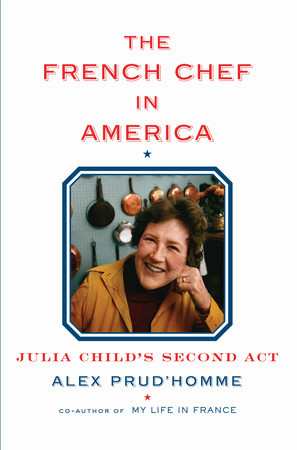


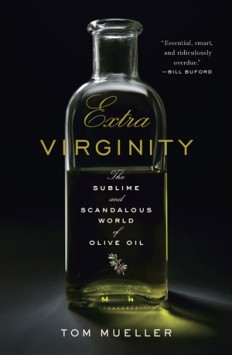
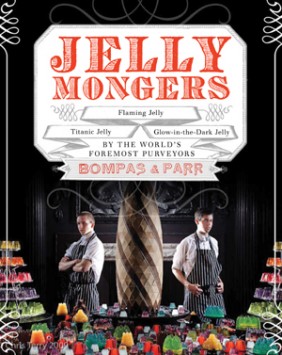
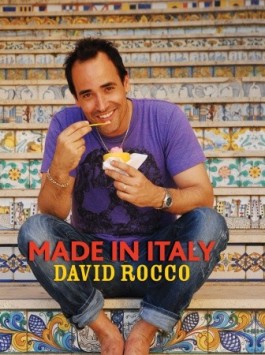
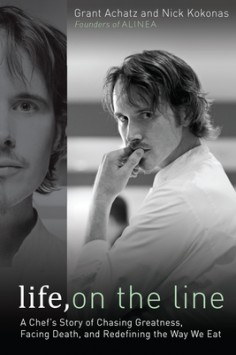
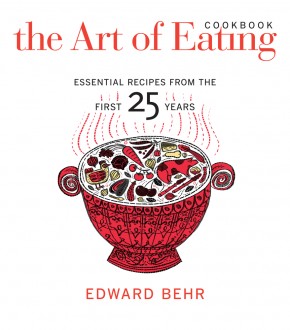
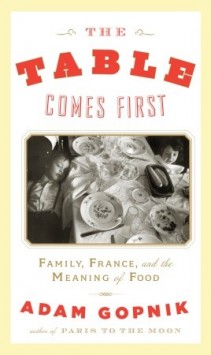
Leave a Reply